Breast Reconstruction in Costa Rica
Search and Compare the Best Clinics and Doctors at the Lowest Prices for Breast Reconstruction in Costa Rica

Find the best clinics for Breast Reconstruction in Costa Rica
No pricing info available
India offers the best prices Worldwide
Price: $ 477
From 80 verified reviews
B-boy Michael, 25 March 2020
It is a good place for the need of a medical service, the facilities are in very good condition, the attention to the users is quite good, with the parking you can park outside, but there is parking in front of the building.
Dr. Chavarria Plastic Surgery Clinic, can be found in Calle los Almendros, San Jose, Costa Rica and offers its patients Breast Reconstruction procedures as well as 42 other procedures, across 1 different procedure categories. At present, there is no pricing information for Breast Reconstruction procedures at Dr. Chavarria Plastic Surgery Clinic. The pricing information is quite specialised, so it's only available on request. A small team of medical professionals undertake all procedures at the Clinic, with 2 in total, and Dr. Chavarria Plastic Surgery Clinic has several accreditations, including: ISAPS (International Society of Aesthetic Plastic Surgery)The American Society for Aesthetic Plastic Surgery
Dr Jorge Badilla Plastic & Aesthetic Surgery, can be found in Radial Francisco J Orlich, Alajuela, Costa Rica and offers its patients Breast Reconstruction procedures as well as 35 other procedures, across 2 different procedure categories. At present, there is no pricing information for Breast Reconstruction procedures at Dr Jorge Badilla Plastic & Aesthetic Surgery. The pricing information is quite specialised, so it's only available on request. The lead specialist at the Hospital will be carrying out all the treatments, and Dr Jorge Badilla Plastic & Aesthetic Surgery is not accredited by any recognised accreditations institutions.
Dr. Mario Alvarenga - Cirujano Plástico, can be found in Radial Francisco J Orlich, Alajuela, Costa Rica and offers its patients Breast Reconstruction procedures as well as 21 other procedures, across 3 different procedure categories. At present, there is no pricing information for Breast Reconstruction procedures at Dr. Mario Alvarenga - Cirujano Plástico. The pricing information is quite specialised, so it's only available on request. The lead specialist at the Hospital will be carrying out all the treatments, and Dr. Mario Alvarenga - Cirujano Plástico is not accredited by any recognised accreditations institutions.
Centro Médico Dr. Macaya Centro, can be found in Calle los Almendros, San Jose, Costa Rica and offers its patients Breast Reconstruction procedures as well as 33 other procedures, across 4 different procedure categories. At present, there is no pricing information for Breast Reconstruction procedures at Centro Médico Dr. Macaya Centro. The pricing information is quite specialised, so it's only available on request. The lead specialist at the Hospital will be carrying out all the treatments, and Centro Médico Dr. Macaya Centro has several accreditations, including: ICS - International College of SurgeonsISBI - International Society for Burn InjuriesFILACP - Federación Ibero Latinoamericana de Cirugía Plástica
- Home
- Costa Rica
Compare Before & After Photos of _procedure_photos.phpBreast Reconstruction
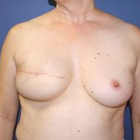
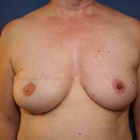
Front view
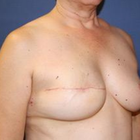
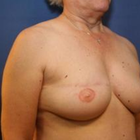
Half-side view
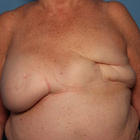
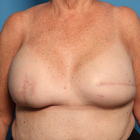
Front view
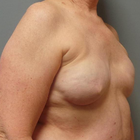
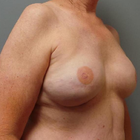
Half-side view
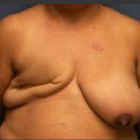
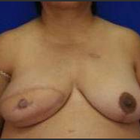
Front view
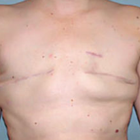
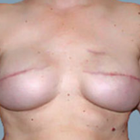
Front view
WHY US?
At Medijump, we're making medical easy. You can search, compare, discuss, and book your medical all in one place. We open the door to the best medical providers worldwide, saving you time and energy along the way, and it's all for FREE, no hidden fees, and no price markups guaranteed. So what are you waiting for?

Free

Best Price

Widest Selection

Risk-Free
What you need to know about Breast Reconstruction in Costa Rica
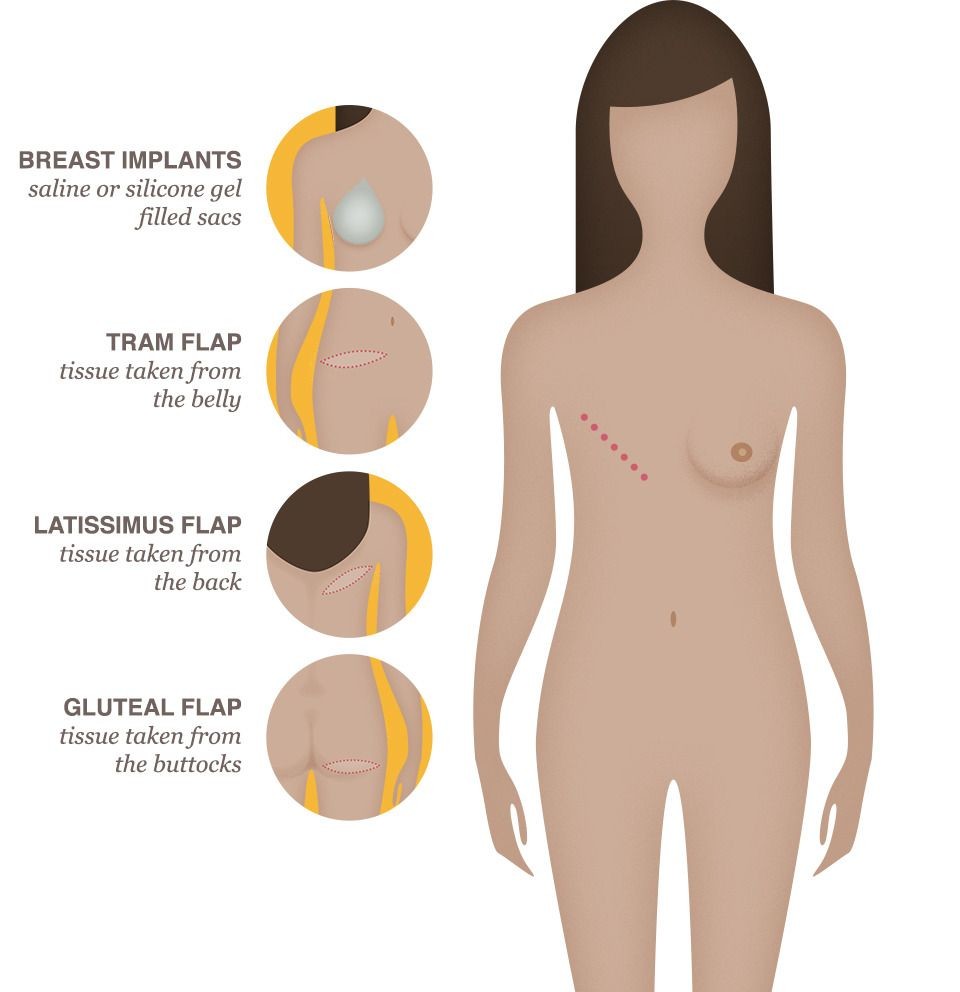
Breast reconstruction is a significant surgery undertaken to rejuvenate the physical form of a woman's chest after losing one or both breasts to cancer or another disease. In Costa Rica, medical centres are well-equipped with top-tier talent in plastic surgery to facilitate this intricate procedure. Every woman's journey is different, and her treatment plan is personalized, considering her unique circumstances and needs.
It's heartening to know that breast cancer treatments like chemotherapy or radiation therapy aren't impeded by reconstruction. Moreover, this surgery doesn't spike the risk of cancer coming back. Undeniably, breast reconstruction is a major surgery with inherent risks, including chances of infection, complications with wound healing, and potential dilemmas related to implants.
What is the cost of Breast Reconstruction in Costa Rica?
Undergoing surgery like Breast Reconstruction brings along a financial commitment. The expense varies extensively, depending on many factors like the complexity of the procedure, the medical professional performing the surgery, the hospital's facility, and the region, amongst others. Generally, the cost might range between $15,000 to $50,000, including multiple surgeries or intricate techniques within this estimate.
Thankfully, in many cases, insurance plans cover such surgical procedures, especially given mandates like the Women's Health and Cancer Rights Act of 1998 in the U.S. Still, out-of-pocket expenses associated with co-payment or deductibles can add up. It's recommended to navigate these aspects with your insurance provider and your chosen healthcare facility in Costa Rica.
What does a Breast Reconstruction Procedure Involve?
Breast reconstruction generally happens in stages, starting with the most complex first, which may either occur at the same time as the mastectomy or later, based on the individual’s specific health conditions or treatment plan.
Two main techniques are employed in breast reconstruction. One is the use of an implant, saline, or silicone to recreate the breast shape. Two, autologous or flap reconstruction where tissue from the patient’s body like the abdomen or thigh is relocated to recreate the breast shape. The method selected is dependent on individual factors like the patient’s health, personal choice, cancer type, and stage.
After the primary surgery and post an adequate healing period, the surgeon performs a second procedure to recreate the nipple and areola. Later, to give it a natural look, the nipple-areola complex is tattooed. Remember that although it is a common procedure, complications might arise involving reaction to anaesthesia, bleeding, infection, poor healing or the need for further interventions.
How Long Should I Stay in Costa Rica for a Breast Reconstruction Procedure?
Post-breast reconstruction surgery, patients typically stay in the hospital for two to five days. However, if the reconstruction was done immediately after the mastectomy, the stay could extend from three to six days.
Overall, a patient should expect to remain in Costa Rica for approximately two weeks post-surgery. This allows enough time for necessary follow-ups and to address any complications, if they arise. As with any major surgical procedure, do not hasten the healing process.
What's the Recovery Time for Breast Reconstruction Procedures in Costa Rica?
The recovery timeframe for breast reconstruction procedures in Costa Rica varies from patient to patient. Generally, for implant-based procedures, patients may take about four to six weeks to recuperate before they return to normal routines. For more complex autologous techniques, particularly those using abdominal tissue, patients might require six to eight weeks for recovery.
Recovering patients need to temper their activities during this period. Avoid lifting heavy objects and defer strenuous exercise until your physician gives a clear signal. Medical assistance should be promptly sought if any discomforting symptoms like chronic pain, redness or swelling surface.
What's the Success Rate of Breast Reconstruction Procedures in Costa Rica?
Medical success cannot just be measured in terms of complication-free postoperative progress or longevity of implants used in breast reconstruction. Patient satisfaction with their surgery, their psychological well-being following the operation, their perception of body image, and their quality of life post-surgery are equally important factors to consider. Studies indicate that between 85% to 90% of women who have undergone breast reconstruction are satisfied with the long-term results.
In Costa Rica, dedicated hospitals and healthcare facilities strive to offer high-quality treatment, ensuring the best possible surgical outcomes using progressive technology and experienced professionals. Still, everyone's response to surgery varies, and outcomes depend on factors such as overall health, age, body type, and compliance with surgical advice.
Are there Alternatives to Breast Reconstruction Procedures in Costa Rica?
Indeed, there are alternatives to breast reconstruction in Costa Rica. The journey of every woman is unique and how she chooses to deal with the loss of a breast, or both, is a highly personal decision. Alternatives include:
- Breast Prostheses or Forms: They are silicone forms that imitate the appearance and feel of natural breast tissue. They come in diverse sizes, shapes and colours to closely match the woman's skin tone.
- Flat Closure: In this method, the surgeons sew up the chest wound smoothly, without constructing a breast mound. This option appeals to women who choose not to have more surgeries or body implants.
- Opting not to undergo reconstruction at all, also termed as "going flat: This method exhibits the woman's choice to live comfortably with her new body shape without artificial substitutes or further surgeries. It is a fully personal decision deserving respect and support.
Each of these options has pros and cons, and the choice depends on the woman’s personal preference, health status, lifestyle, and perception of her body. Regardless of the choice, it’s important to regularly monitor breast health and engage in practices that promote overall wellness.
What Should You Expect Before and After the Breast Reconstruction Procedure?
Before the surgery, comprehensive discussions with the surgeon will take place to understand treatment objectives, outcomes, and possible complications. Preoperative tests, lifestyle modifications, and nutritional advice may form a part of the preparatory process.
Postoperative care is equally important: discomfort, swelling, and bruising are normal and subside over time. Pain management strategies will be provided to help you manage discomfort effectively. Your surgeon will provide personalised guidance on caring for your surgical site, usage of medications, and physical activities.
What sort of Aftercare is Required for Breast Reconstruction Procedures in Costa Rica?
The following points should be considered post-operation:
- Follow the instructions given by your doctor and take your medicines as and when prescribed.
- Consult a nutritionist for a diet plan. A healthy diet helps you recover faster.
- Do not wear a padded or underwire bra until allowed by your doctor.
- Use surgical bras in the early few days after the surgery.
- Avoid excessive unnecessary movement of your breasts.
- Do not lift heavy objects and children - it could stretch on your stitches.
- Change your bandage whenever it gets dirty. Germs can cause infection.
- Do not take a bath when the bandages are still intact. A wet bandage can also be the cause of infection.
- Abstain from sexual activity for at least 6 weeks.
- Take rest - give yourself time to recover.
How Do I Prevent Cancer from Recurring?
Preventing cancer recurrence largely revolves around a balanced, healthy lifestyle coupled with regular medical check-ups. Regular exercise, maintaining a healthy weight, and eating nutritiously can contribute to cancer prevention. Smoke cessation and limiting exposure to secondhand smoke are crucial for both prevention and postoperative recovery.
Regular breast self-examinations, as well as mammograms and follow-up visits, are critical for early detection of any recurrence. Stress management techniques like yoga, meditation, and spending time in nature can also play an essential role in overall health.
Your medical team in Costa Rica is there to support you, offering advice tailored to your individual health status and medical history. Remember, proactive health checks are key to maintaining overall health and preventing the recurrence of diseases like cancer.
What is the ideal time to have Breast Reconstruction surgery after a Mastectomy in Costa Rica?
The decision regarding when to have Breast Reconstruction following a Mastectomy in Costa Rica is largely based on the individual's health status, treatment plan, personal preferences, and discussions with the oncology team. Breast reconstruction can be done at the time of mastectomy (immediate reconstruction) or at a later date (delayed reconstruction). Immediate reconstruction might offer psychological benefits and less overall surgery since both procedures are done together. Yet, if additional treatments such as radiation therapy are required post-mastectomy, opting for delayed reconstruction could be advisable to avoid risks posed by radiation to the new construct.
Remember that deciding on the timing of breast reconstruction is a personal choice and should be made in consultation with your healthcare providers. They can provide specific guidance based on your health condition and treatment plan.
How Will Breast Reconstruction in Costa Rica Impact My Routine Mammograms and Breast Cancer Detection?
Breast reconstruction surgery may impact the way routine breast cancer screenings are conducted. After a mastectomy with or without reconstruction, women usually don't need routine screening mammograms on the treated side since all breast tissue has been removed. However, they would need routine mammograms for the untreated breasts.
If you've had reconstruction using your own body tissue, your surgeon or oncologist will guide you on whether or not you'll require mammograms on the reconstructed breast. Remember, mammograms can still be performed on reconstructed breasts, and self-breast exams should be a regular part of your health routine.
Whilst the information presented here has been accurately sourced and verified by a medical professional for its accuracy, it is still advised to consult with your doctor before pursuing a medical treatment at one of the listed medical providers
No Time?
Tell us what you're looking for and we'll reachout to the top clinics all at once
Enquire Now

Popular Procedures in Costa Rica
Prices Start From $497

Prices Start From $208

Prices Start From $834

Prices Start From $500

Prices Start From $93

Prices Start From $85

Recommended Medical Centers in Costa Rica for Breast Reconstruction

- Interpreter services
- Translation service
- Religious facilities
- Medical records transfer
- Medical travel insurance
- Health insurance coordination
- TV in the room
- Safe in the room
- Phone in the room
- Private rooms for patients available

- Interpreter services
- Translation service
- Religious facilities
- Medical records transfer
- Medical travel insurance
- Health insurance coordination
- TV in the room
- Safe in the room
- Phone in the room
- Private rooms for patients available

- Interpreter services
- Translation service
- Religious facilities
- Medical records transfer
- Medical travel insurance
- Health insurance coordination
- TV in the room
- Safe in the room
- Phone in the room
- Private rooms for patients available

- Interpreter services
- Translation service
- Religious facilities
- Medical records transfer
- Medical travel insurance
- Health insurance coordination
- TV in the room
- Safe in the room
- Phone in the room
- Private rooms for patients available

- Interpreter services
- Translation service
- Religious facilities
- Medical records transfer
- Medical travel insurance
- Health insurance coordination
- TV in the room
- Safe in the room
- Phone in the room
- Private rooms for patients available

- Interpreter services
- Translation service
- Religious facilities
- Medical records transfer
- Medical travel insurance
- Health insurance coordination
- TV in the room
- Safe in the room
- Phone in the room
- Private rooms for patients available

- Interpreter services
- Translation service
- Religious facilities
- Medical records transfer
- Medical travel insurance
- Health insurance coordination
- TV in the room
- Safe in the room
- Phone in the room
- Private rooms for patients available

- Interpreter services
- Translation service
- Religious facilities
- Medical records transfer
- Medical travel insurance
- Health insurance coordination
- TV in the room
- Safe in the room
- Phone in the room
- Private rooms for patients available

- Interpreter services
- Translation service
- Religious facilities
- Medical records transfer
- Medical travel insurance
- Health insurance coordination
- TV in the room
- Safe in the room
- Phone in the room
- Private rooms for patients available

- Interpreter services
- Translation service
- Religious facilities
- Medical records transfer
- Medical travel insurance
- Health insurance coordination
- TV in the room
- Safe in the room
- Phone in the room
- Private rooms for patients available
Breast Reconstruction in and around Costa Rica
Costa Rica is a tiny country in Central America, bordered by Panama, Nicaragua, the Caribbean Sea, and the Pacific Ocean. This country is generally regarded as having the most democratic and stable government of all the Central American countries. It charms its visitors with unspoiled beaches, lush rainforests, a plethora of wildlife, and steaming volcanoes. Besides its breathtaking landscape, Costa Rica is also famous for its healthcare. Tens of thousands of medical tourists come to this country to take advantage of its world-class yet inexpensive medical care. Most of the medical procedures in the country are 40% to 50% cheaper than in the United States or Europe. Cosmetic surgery and dentistry are the most sought-after procedure, but a growing number of foreign patients also come for orthopedic treatment, bariatric surgery, and eye surgery.
Popular Parts of Costa Rica
Surrounded by volcanoes and green hills, San José, the capital and largest city of Costa Rica, has one of the most spectacular settings in the world. This laid-back and pleasant capital is filled with colonial mansions that have been converted into contemporary galleries, amazing food, and vibrant nightlife. The most popular attractions in this city are Museo de Jade, Teatro Nacional, Museo Nacional de Costa Rica, and Mercado Central. Those who want to relax under the sun usually visit Tamarindo, which is famous for its beaches. Here, visitors can visit Las Baulas National Marine Park, go rafting in the Colorado River, or relax in Playa Tamarindo.
Weather and Climate in Costa Rica
Due to its close proximity to the Equator, Costa Rica is a tropical country with two seasons: the dry “summer” season and rainy “winter” season. The dry season, from January to April, is warm and pleasant. Rain is very unlikely to fall during this season, even in the rainforests. The rainy season, sometimes called the “green season,” is hot and humid. Rain usually falls in the afternoon and evening, while the mornings are often sunny. On the Caribbean coast, rainfall is spread out throughout the year, but it gets far less rain in September and October.
Getting around in Costa Rica
Juan Santamaría International Airport is the main international airport in Costa Rica, located in San José. It has various flights to domestic and international destinations, including Toronto, Mexico, New York, and London. Affordable domestic flights between San José and popular destinations are the fastest way to get around and handy for accessing the more remote areas. Buses are reasonably priced and have an extensive network, but they can be slow. Private and shared shuttles are available, the best way to get around is, however, by renting a car as it gives more flexibility and allows you to access more remote destinations.
Tourist Visas in Costa Rica
Everyone who wants to visit and stay in Costa Rica is required to have a passport unless they are a citizen of one of the visa-exempt countries. The visa-exempt countries include EU countries, the UK, the US, Australia, Russia, and several other nations. Citizens of other countries not listed in the visa exemption agreement need to apply and obtain a visa before visiting.
Additional Information
- Local Currency: Colón (CRC) is the national currency of Costa Rica. 1 USD is equivalent to 601 CRC. In some places, such as tourist areas, US dollars are accepted.
- Money & Payments: ATMs accepting foreign cards, particularly Visa, can be found in all major cities and small towns. Credit cards, such as Visa and MasterCard, are all accepted in larger establishments. Tipping is not mandatory but appreciated.
- Local Language: Costa Rican Spanish is the official and most commonly spoken language in Costa Rica. English is widely spoken in tourist areas.
- Local Culture and Religion: Roman Catholicism is the official religion in Costa Rica, but the constitution provides for freedom of religion. Around 17% of the population is unaffiliated with any religions and around 3% follows either Buddhism, Islam, Judaism, Hinduism, Neo-Paganism, or other religions.
- Public holidays: New Year’s Day, Juan Santamaria Day, Guanacaste Day, Assumption, Mother’s Day, Independence Day, Day of the Cultures, and Christmas Day are some of the most celebrated public holidays in Costa Rica.
Popular Searches
- Plastic Surgery in Thailand
- Dental Implants in Thailand
- Hair Transplant in Thailand
- Breast Augmentation Thailand
- Gastric Sleeve in Thailand
- Gender Reassignment Surgery in Thailand
- Laser Hair Removal in Bangkok
- Botox in Bangkok
- Dermatology in Bangkok
- Breast Augmentation in Bangkok
- Coolsculpting in Bangkok
- Veneers in Turkey
- Hair Transplant in Turkey
- Rhinoplasty in Turkey
- Stem Cell Therapy in Mexico
- Rhinoplasty in Mexico
- Liposuction in Mexico
- Coolsculpting in Tijuana
- Rhinoplasty in Korea
- Scar Removal in Korea
- Gastric Sleeve in Turkey
- Bone Marrow Transplant in India
- Invisalign in Malaysia
- Plastic Surgery in the Dominican Republic
- Tummy Tuck in the Dominican Republic
- Plastic and Cosmetic Surgery in Poland
- Rhinoplasty in Poland
- Hair Implant in Poland
- Dental Implants in Poland
- IVF in Turkey


